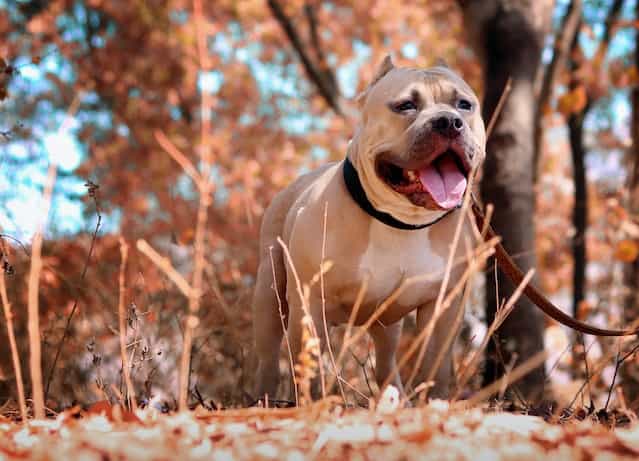
Training a pitbull puppy not to bite is an essential part of responsible dog ownership. Pitbulls are often misunderstood and unfairly labeled as aggressive dogs, but with proper training and socialization, they can be loving and friendly pets. However, like all puppies, pitbulls have a natural instinct to bite and chew, which can become a problem if not addressed early on.
The first step in training a pitbull puppy not to bite is to establish yourself as the pack leader. This means setting rules and boundaries and enforcing them consistently. It’s important to be firm but gentle with your puppy, using positive reinforcement techniques to encourage good behavior. You should also provide plenty of socialization opportunities, exposing your puppy to different people, animals, and environments to help them become well-adjusted adults.
One effective way to discourage biting is to redirect your puppy’s attention to an appropriate chew toy whenever they try to bite or chew on something they shouldn’t. This teaches them what is and isn’t acceptable behavior and helps prevent destructive chewing. Consistency and patience are key when training a pitbull puppy not to bite, and with time and effort, you can help your puppy become a well-behaved and happy companion.
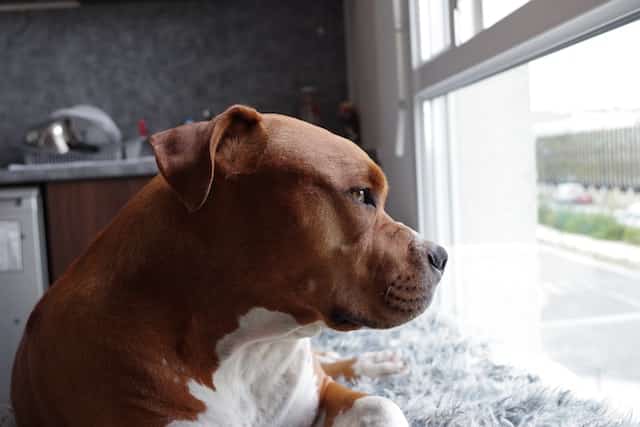
Understanding Pitbull Puppies
Pitbull Puppy Behavior
Pitbull puppies are known for their high energy levels and playful nature. They are intelligent and eager to please their owners. However, they can also be stubborn and require a firm and consistent training approach. Pitbull puppies are also known for their strong jaws and tendency to bite, which can be a concern for owners.
It is important to socialize your pitbull puppy from a young age to help them develop good behavior around other dogs and people. This can help reduce the likelihood of biting or aggressive behavior in the future. Proper socialization involves exposing your puppy to different environments, people, and animals in a positive and controlled way. This can help them learn how to interact with others in a safe and appropriate manner.
Reasons for Biting
Pitbull puppies may bite for a variety of reasons, including teething, playfulness, fear, or aggression. Teething is a common reason for biting in puppies, as they may chew on objects or people to relieve discomfort. Playful biting is also common in puppies, as they may nip or bite during play. However, it is important to discourage this behavior early on to prevent it from becoming a habit.
Fear and aggression are more serious reasons for biting in pitbull puppies. Fearful puppies may bite out of self-defense, while aggressive puppies may bite as a way to establish dominance or control. It is important to address these behaviors early on with proper training and socialization to prevent them from becoming a bigger problem in the future.
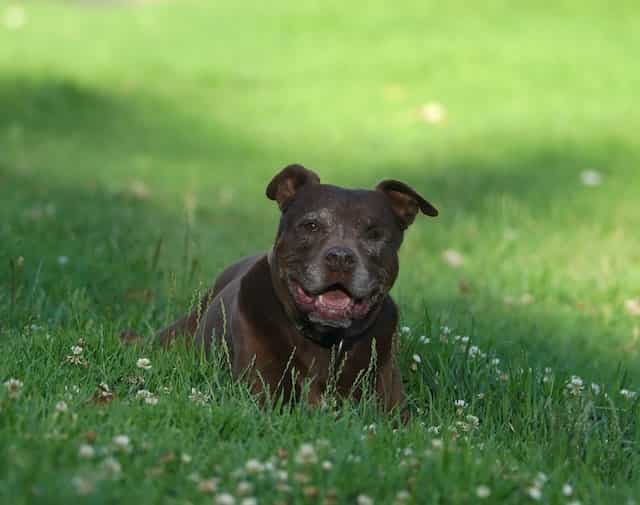
Training Techniques
Positive Reinforcement
One of the most effective ways to train a pitbull puppy not to bite is through positive reinforcement. This involves rewarding good behavior with treats, praise, or playtime. When your puppy exhibits good behavior, such as not biting or chewing on inappropriate objects, immediately reward them with a treat or praise. This will reinforce the behavior and encourage them to continue behaving well.
Redirecting Behavior
If your pitbull puppy does bite or chew on inappropriate objects, it’s important to redirect their behavior. Instead of scolding or punishing your puppy, simply redirect their attention to an appropriate chew toy or activity. This will teach them what is and isn’t acceptable behavior, without causing fear or aggression.
Consistency and Patience
Consistency is key when training a pitbull puppy not to bite. Make sure everyone in your household is using the same training techniques and enforcing the same rules. It’s also important to be patient and understand that training takes time. Don’t expect your puppy to learn everything overnight, and be prepared to put in the time and effort needed to train them properly.
By using positive reinforcement, redirecting behavior, and being consistent and patient, you can effectively train your pitbull puppy not to bite. Remember to always use gentle, positive training methods, and avoid making exaggerated or false claims about your puppy’s behavior.
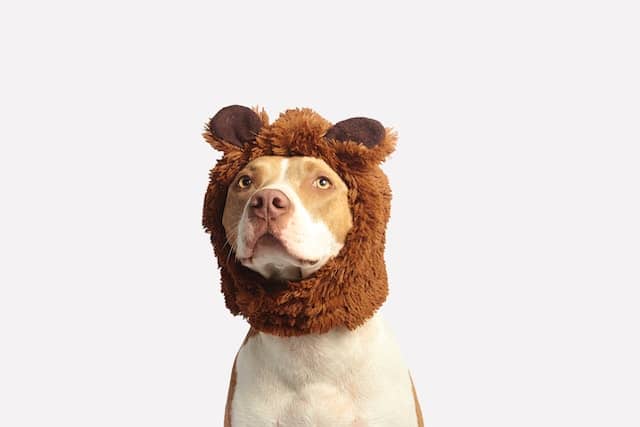
Socialization
Exposing to Different People and Animals
Socialization is crucial for a pitbull puppy to learn how to interact with different people and animals. It helps them develop confidence and reduces the chances of aggression towards strangers. Introduce your puppy to different people, such as friends, family members, and strangers, in a controlled and positive environment. Encourage your puppy to interact with them by offering treats and praise.
It’s also important to expose your pitbull puppy to other animals, such as cats, dogs, and other small animals. Start with controlled and supervised interactions and gradually increase the exposure as your puppy becomes comfortable. Teach your puppy to be gentle and calm around other animals.
Encouraging Good Behavior
Encouraging good behavior is an essential part of socializing your pitbull puppy. Positive reinforcement training techniques, such as treats, praise, and playtime, are effective ways to encourage good behavior. Reward your puppy for good behavior, such as sitting, staying, and coming when called.
It’s also essential to correct bad behavior, such as biting, chewing, and jumping, in a positive and consistent manner. Redirect your puppy’s attention to a toy or treat when they start biting or chewing on inappropriate objects. Use a firm and consistent tone of voice to discourage bad behavior, but never use physical punishment or aggression.
Remember, socialization is a continuous process that requires patience and consistency. Make sure to expose your pitbull puppy to different people and animals regularly and encourage good behavior through positive reinforcement techniques.
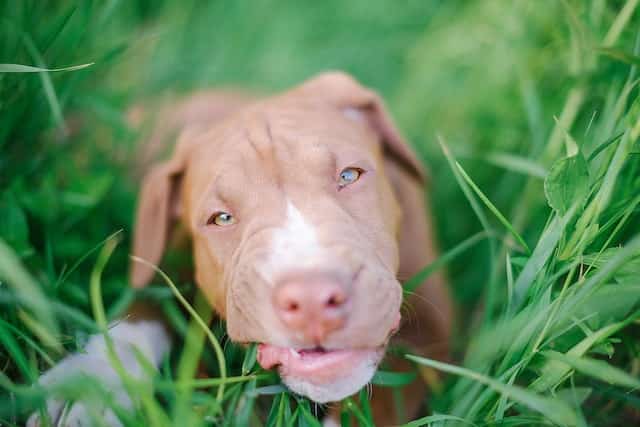
Conclusion
Training a pitbull puppy not to bite is a crucial step in raising a well-behaved and socialized dog. It requires patience, consistency, and positive reinforcement. By following the tips outlined in this article, you can help your pitbull puppy learn appropriate bite inhibition and become a loving and trustworthy companion.
Remember to start training early, use positive reinforcement techniques, and provide plenty of socialization opportunities. Consistency is key, so be sure to reinforce good behavior and redirect inappropriate biting every time it occurs. Never use physical punishment or harsh training methods, as these can harm your puppy and damage your relationship.
With time and effort, your pitbull puppy can learn to control their biting and become a well-adjusted member of your family. By setting clear boundaries and providing plenty of love and attention, you can help your puppy develop into a happy and well-behaved adult dog.